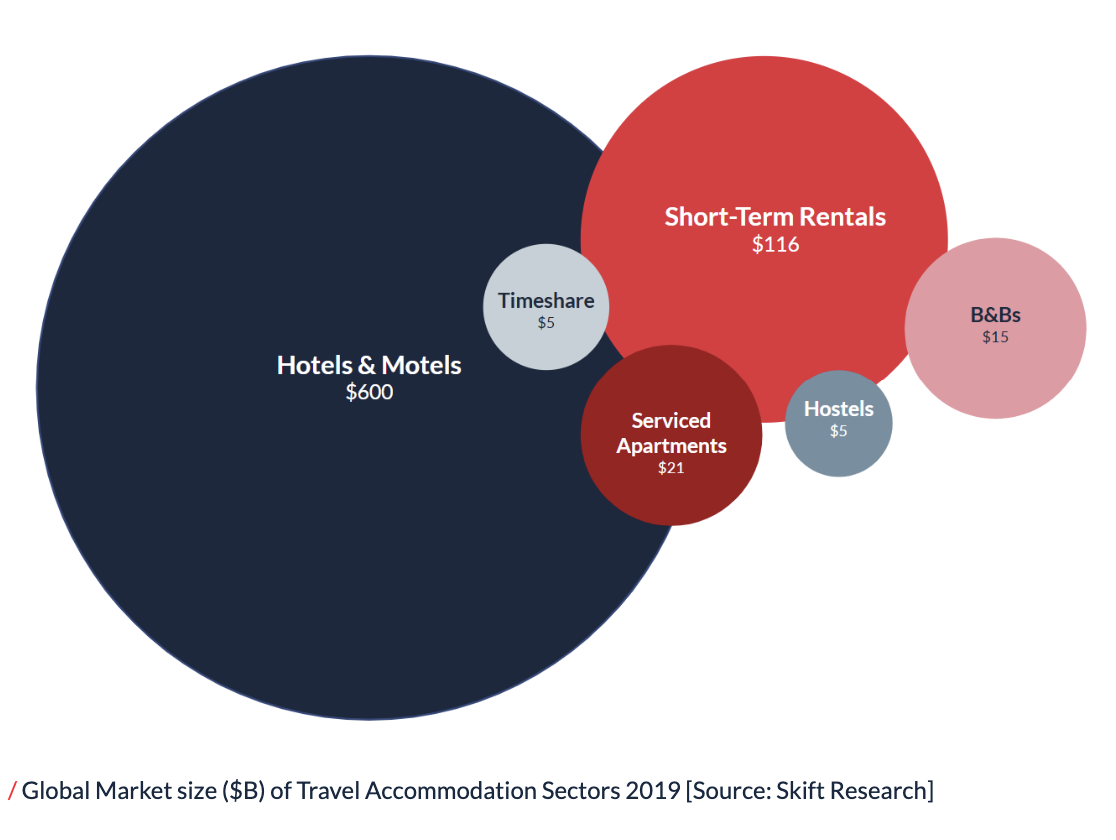30 January 2025 • Guest News • Host News
Mega Trends Shaping the Short-Term Rental Industry
Part 1 of our 4 part series looks at the travel and accommodation landscape and analyses the key changes in consumer behaviour and revenue strategy in the sector. Markets all over the globe have been driven by tighter regulations, the digitisation of consumer needs, and the convergence of different accommodation sectors. Here’s a closer look at these trends and what they mean for the industry.
Tighter Regulation Impacting Short-Term Rentals
As regulatory measures continue to tighten globally, the short-term rental market faces new challenges. A prime example is New York City’s ban implemented in 2023, which resulted in a dramatic 83% decrease in Airbnb listings from July 2023 through July 2024. More regulation is inevitable with anti-Airbnb sentiment rising amid perceived house price inflationary pressures driven by short-term rental demand. This recent report prepared by EY suggests otherwise, however, popular opinion is likely to remain firmly in the NIMBY camp.
For Airbnb property managers and real estate investors, this emphasizes the importance of staying ahead of legislative changes. Adopting a diversified strategy that includes mid- to long-term stays can help offset potential risks associated with a highly dynamic regulatory environment. Being proactive is essential for sustaining revenue and maintaining a competitive edge.
The Rise of Conscious Travel
The travel preferences of Millennials and Gen Z are shifting towards a more conscious approach. These generations are increasingly aware of their travel impact and environmental footprint, leading them to favor experience-driven breaks in lesser-known destinations rather than traditional tourist hotspots.
This trend calls for travel brands to rethink their offerings and consider how they can promote sustainable practices. By highlighting ecologically friendly options and unique experiences, businesses can attract this growing demographic looking for meaningful travel experiences.
Convergence in Accommodation Sectors
In a bid to compete with the booming short-term rental market, global hotel brands are expanding their service offerings. We can expect to see more partnerships and integrations as traditional hotel companies explore opportunities within the short-term rental space. Notable examples include Marriott’s collaboration with Vacasa, Accor’s partnership with One Fine Stay, and Hyatt’s association with Homes & Hideaways.

This convergence not only enhances the variety of accommodations available but also allows hotel chains to leverage their established reputation for service while tapping into the flexibility and homely appeal of short-term rentals.
Conclusion
As the travel and accommodation sectors continue to evolve, understanding these trends is essential for staying competitive. Property managers, marketers, and travel brands must adapt their digital property management strategy and offerings to meet new regulations, cater to conscious travelers, and explore innovative partnership opportunities. By doing so, they can navigate the changing landscape and thrive in the future of travel.
For more detailed information on market trends and airbnb revenue strategies access our full report here.
Share this:




